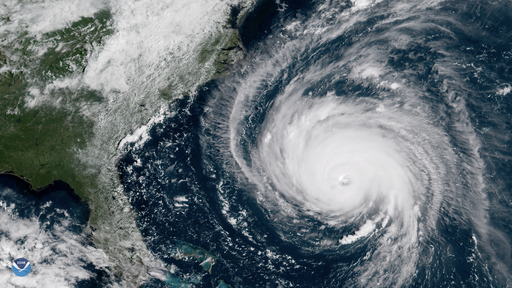You’re Gonna Need a Bigger Alphabet
It has been 20 years nearly to the day that Hurricane Isabel came ashore in North Carolina, causing enormous destruction along the densely built eastern seaboard as it moved up through Virginia and on into the northeastern United States. Now Tropical Storm Ophelia has made landfall in North Carolina and it appears it will follow a similar path of destruction as Hurricane Isabel did 20 years ago.
The notable difference between the two weather systems, besides strength, is how much later in the alphabet the “O” in Ophelia comes after the “I” in Isabel. I – J – K – L – M – N – O. That’s a six letter difference, yet the time of year for the landfall of both systems is nearly the same. Using the alphabetical convention for naming Atlantic storms this way is admittedly a seat of the pants method for marking 20 years of climate change, but it’s memorable in the same way that markings on a door jamb tell the story of a child’s growth over the years.

High water marks on a door jamb in Wertheim am Main, Germany. 2011 photo by Rainer Lippert.
The convention for naming storms has been in place since 1953. The U.S. National Hurricane Center at first maintained the list of storm names, a task which has since been taken over by the World Meteorological Organization. Only twice since 1953 has either organization run out of letters of the English alphabet and had to resort to letters of the Greek alphabet, in 2005 and 2020. They may run out again this year.
A scene from Jaws, a 1975 movie directed by Steven Spielberg and starring Roy Scheider, Robert Shaw, and Richard Dreyfuss. Warning: foul language.
In records going back to the late nineteenth century, the three most active Atlantic storm seasons have occurred in the last 20 years. None of the least active seasons have occurred in the last 20 years. If this trend continues, running out of English alphabet letters to use in naming storms may become a common occurrence over the next 20 years. Such an eventuality will be far from an ideal way for the inhabitants of the eastern seaboard and points inland to learn Greek.
— Ed. 



